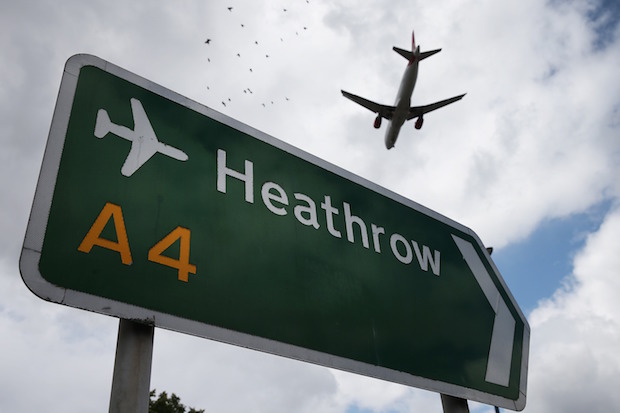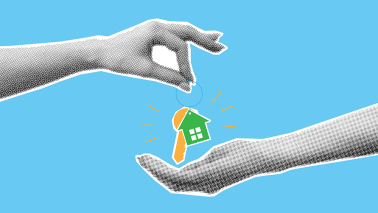United Airlines will be cursing the day someone had the bright idea of building cameras into mobile phones. Video clips showing a semi-conscious 69-year-old man being dragged from an overbooked plane after he refused to disembark went viral last week, sending the airline’s reputation into a tailspin.
For those who’ve been on a really long media-free flight for the past week, here’s what happened. Last Monday passengers boarded flight 3411 in Chicago bound for Louisville, Kentucky. But before it took off, United decided it needed to squeeze in four crew members who needed to be in Louisville for work the next day.
It asked for four volunteers to be bumped off the flight in return for $800 each but, when no one came forward, crew members picked four passengers at random. Three left ‘voluntarily’ but David Dao, a doctor, refused and was subsequently forcibly removed from the plane by police, suffering a bloodied face after he ‘fell’ in the process.
Still, looking on the bright side, it’s always better to be dragged off a plane at the gate than ejected at 40,000 feet.
PR professionals were seen breathing into paper bags as they witnessed the sheer horror of United’s handling of the incident. CEO Oscar Munoz said: ‘I apologize for having to re-accommodate these customers.’ He also described the man as ‘disruptive and belligerent’ which, to be fair, he probably was: realising the flight ticket you’ve paid good money for is actually a gamble that may or may not get you to your destination rarely brings out the best in people.
Tuesday saw $600 million knocked off United’s stock market valuation, meaning United could have upped the compensation for each bumped off customer to $149.9 million and still been quids in. Munoz was clearly more upset about disgruntled shareholders than hospitalising a patient, and he subsequently issued a slightly better apology.
Dr Dao’s lawyers have already filed an emergency court request for the airline to preserve evidence. He is bound to sue. I definitely would – assault, bodily injury, public humiliation, discrimination (he’s Chinese), the list is endless. But what rights do passengers generally have if they’re bumped off a flight?
According to the Civil Aviation Authority, about 50,000 passengers are bumped off British flights each year – that’s about 0.02 per cent of people travelling to or from the UK. US airlines bumped 40,000 passengers last year, not counting those who volunteered to give up their seats. However, it’s rare for passengers to actually board a plane before being ‘denied boarding’, which is the technical term for not being allowed to fly when you’ve bought and paid for a ticket.
Most airlines book more people onto a flight than there are seats on the plane. This is because people who’ve bought a ticket don’t always turn up. But, inevitably, occasionally everyone turns up and some passengers will need to be left behind. Airlines usually ask for volunteers to be bumped in exchange for benefits, usually cash or vouchers. Without volunteers, airlines reserve the right to ‘deny boarding’ to passengers picked at random (normally those who paid the cheapest fares or who were last to check in).
If you are travelling to or from an EU airport or with an EU-based airline, the rights of bumped customers are fairly straightforward and protected by the Denied Boarding Regulations. Volunteers will be entitled to an alternative flight or a refund plus compensation in cash or vouchers – how much depends on your bargaining skills.
If there aren’t any volunteers and people are picked at random to be left behind, they will be entitled to an alternative flight or a refund, plus compensation. The cash will vary from €125 to €600 depending on how long the flight was and how late you arrived at your destination. The airline should also look after you while you wait for your new flight – this means food, drink, communications (including two faxes which personally I couldn’t live without) and accommodation if the delay involves an overnight stay.
In the US, the technical term for forcing passengers off oversold flights is ‘involuntarily denied boarding,’ and the rules are set out by the Code of Federal Regulations (CFR). Compensation is paid on a sliding scale depending on the fare paid, how quickly the airline is able to get you to your final destination, and whether the flight is domestic or international. There’s no compensation if you’re less than an hour late and the most you can get is $1,350 (about £1,080).
Whatever country you’re in, it’s always advisable to get any compensation offer in writing – it’s not unknown for airlines to try and wriggle out of their obligations later on.
Anyway, I can’t wait for the next instalment – I’ve got a feeling United is going to be dragged kicking and screaming into a court case.
Emma Lunn is a freelance personal finance journalist






Comments